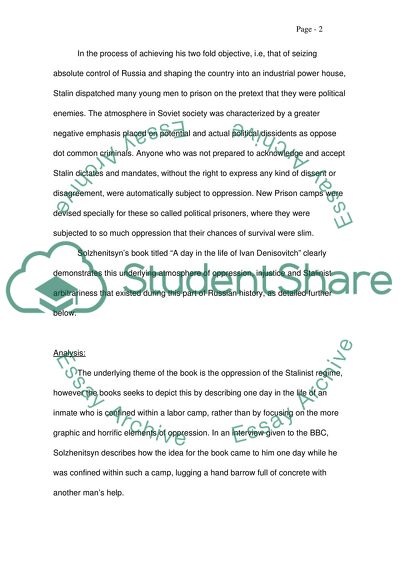Cite this document
(“A Day in the Life of Ivan Denisovitch Essay Example | Topics and Well Written Essays - 3500 words”, n.d.)
Retrieved from https://studentshare.org/literature/1550961-a-day-in-the-life-of-ivan-denisovitch
Retrieved from https://studentshare.org/literature/1550961-a-day-in-the-life-of-ivan-denisovitch
(A Day in the Life of Ivan Denisovitch Essay Example | Topics and Well Written Essays - 3500 Words)
https://studentshare.org/literature/1550961-a-day-in-the-life-of-ivan-denisovitch.
https://studentshare.org/literature/1550961-a-day-in-the-life-of-ivan-denisovitch.
“A Day in the Life of Ivan Denisovitch Essay Example | Topics and Well Written Essays - 3500 Words”, n.d. https://studentshare.org/literature/1550961-a-day-in-the-life-of-ivan-denisovitch.


